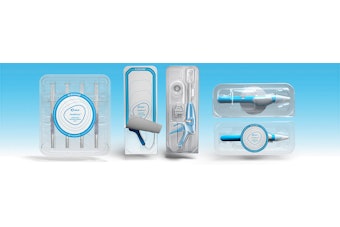This content was written and submitted by the supplier. It has only been modified to comply with this publication’s space and style.
That is the recommendation of the U.S. Pharmacopeial Convention (USP), a nearly 200-year-old organization of technical and scientific experts that develops quality standards for medicines and their ingredients, food ingredients, dietary supplements and herbal medicines.
“Consumers often assume, incorrectly, that they do not need to worry because herbal products are ‘natural’ and that equals ‘safe’,” says Gabriel Giancaspro, Ph.D., vice-president for foods, dietary supplements and herbal medicines at USP. “Many herbal products may interact with other medications, increasing or decreasing their effect or causing adverse effects. Some toxic plants may be easily confused with those known to be safe, highlighting the importance of identity standards. In addition, purity standards are important to avoid contamination with microorganisms and toxic substances such as heavy metals. Variability in plant origin, source conditions and processing practices greatly impact overall quality.”
Data from a recent study from the Military Nutrition Division of the U.S. Army Research Institute of Environmental Medicine (USARIEM) indicates that as many as one in three adults in the U.S. take dietary supplements in combination with prescription drugs. USP urges consumers to always consult with their physicians on the use of herbal products and their potential side effects when combined with other medicines.
Consumers must also understand that while many countries have specific regulations for herbal or traditional medicines, the United States does not. Products that include a claim to treat or cure a disease are considered a drug by the U.S. Food and Drug Administration (FDA), but only a few herbal medicines have gone through the stringent process for drug approval. In most cases, herbal products are sold as dietary supplements or food ingredients, which do not require the same approval process.
“Public standards for quality of dietary supplements are not mandated, so the quality of herbal products sold as dietary supplements may vary significantly from one manufacturer to another”, says Giancaspro. Identity, purity and content standards such as the ones set by USP establish a common ground for quality of dietary supplements, but these should not to be confused with standards for safety or efficacy.”
For more information on USP’s quality standards for dietary supplements, visit: http://www.usp.org/dietary-supplements/dietary-supplements-compendium





















